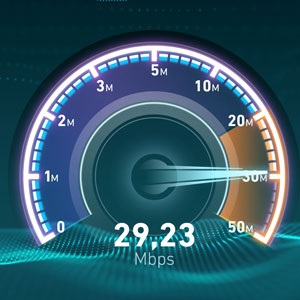
Johannesburg - Rural areas and schools are expected to benefit from government’s planned broadband roll out.
This is according to the deputy minister of telecommunications and postal services, Professor Hlengiwe Mkhize, speaking in an SABC news interview this week.
Government is said to be carrying out phase one of its broadband connectivity project.
In February, Fin24 reported that Finance Minister Nhlanhla Nene allocated R1.1bn to the expansion of broadband connectivity in South Africa. Nene in his budget speech said the funding would target "broadband connectivity in government institutions and schools".
Prior to Nene’s speech, President Jacob Zuma said in his state of the nation address that Telkom would be government’s “lead agency” with its broadband roll out and that phase one of the project would target eight district municipalities: Dr Kenneth Kaunda in North West, Gert Sibande in Mpumalanga, O.R. Tambo in the Eastern Cape, Pixley ka Seme in the Northern Cape, Thabo Mofutsanyane in the Free State, Umgungundlovu and Umzinyathi in KwaZulu-Natal, and Vhembe in Limpopo.
And Mkhize this week said that rural areas, in particular, are expected to benefit from government’s broadband roll-out as urban areas are increasingly catered for.
"As you know, the private sector tends to focus on its strategic areas for them, which would be urban settings because that's where big businesses are,” said Mkhize in the SABC interview.
"And the big question for South Africa is what we always live with - these remote rural areas. In the past they were called the homelands areas. They tend to be forgotten and yet the majority of people are there.
"Hence the government's strategy is to say how do we roll out broadband to those deserving districts and those are the poorest of the poor,” she said.
Mkhize also said that schools are a key focus area for government’s broadband roll-out.
"The process has been to focus really on school connectivity as an entry point to the village. And now when we go to an area, we don't only connect the school but also we look at the health setting, justice for these dockets and the police,” said Mkhize.
"So, it's almost like saying what are front-line service organisations that government has to reach people through and those that are getting connected.
"And I must say that the process is moving at a faster rate now compared to the years of policy formulation which were much slower than now; I think we've picked up (pace),” she added.
Mkhize also said that the National Development Plan (NDP) is “clear” about the need to roll out broadband to 100% of South Africa’s population by 2030.
Watch the SABC interview below:
International criticism
While South Africa’s government has a plan in place to roll out broadband, the country has previously been criticised in its information and communication technology (ICT) efforts by international organisations such as the World Economic Forum (WEF).
Earlier this year, South Africa slipped five places to 75th in the WEF Networked Readiness Index, which measures countries’ capacity to prepare for, use and leverage ICTs.
The WEF, as part of its ranking for SA, highlighted how the country needs to do more on aspects such as boosting its internet capabilities.
“The general state of ICT readiness remains very low (102nd), the result of the poor quality of ICT-related infrastructure (85th), notably the limited international internet bandwidth (128th),” read the report.
Another challenge facing South Africa is the roll-out of mobile broadband.
South Africa last week missed a key international deadline to switch over to digital broadcast, a process that would open up frequencies for faster mobile broadband services.
South Africa is among a small list of non-starter countries that have failed to get the process going. As a result, mobile networks such as Vodacom are relying on 're-farming' existing spectrum to deliver faster LTE broadband services.
This is a situation that is not ideal and which won't result in rapid widespread LTE deployment.
Level of connectivity
South Africa also has long way to go before all of its people are connected online.
According to research from Arthur Goldstuck, the managing director of World Wide Worx, the country is forecast to hit a “conservative estimate” of 18.5 million internet users during 2015.
This figure is then expected to top 24.5 million by 2020, said Goldstuck.
According to the World Bank, South Africa has a population of 52 million people.



 Publications
Publications
 Partners
Partners










